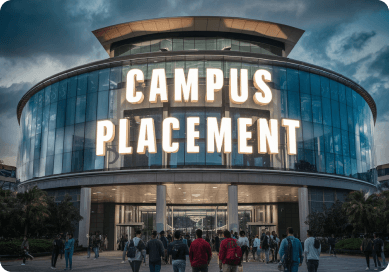Enter OTP



Rouen, France

Rouen, France

Cost Of Living

Undergraduate Fees International Students

Post Graduate Fees International Students

The University of Rouen stands out for its high acceptance rate, making quality education accessible without compromising academic standards. It offers affordable tuition compared to the range of facilities and support available to students. The university actively promotes international exposure through ERASMUS+, Erasmus Mundus, and CREPUQ France-Quebec exchange programs. Strong ties with global institutions boost student mobility and collaborative learning. Its legacy of innovation, including pioneering the first Transcatheter Aortic Valve Implantation, adds to its academic credibility. With a balanced mix of accessibility, global outreach, and research excellence, the university offers a compelling choice for students seeking a well-rounded education.
Annie Ernaux, born in 1940, is a celebrated French writer and professor of literature. Her autobiographical work merge... View More
Annie Ernaux, born in 1940, is a celebrated French writer and professor of literature. Her autobiographical work merges personal memory with social commentary, exploring themes like class, gender, and identity. Awarded the 2022 Nobel Prize in Literature for her fearless examination of personal and collective experience, she continues to influence contemporary literary discourse worldwide View Less
Robert Lecourt (1908–2004) was a lawyer and politician who served as the fourth President of the European Court of J... View More
Robert Lecourt (1908–2004) was a lawyer and politician who served as the fourth President of the European Court of Justice. Before that, he was active in the French Resistance during WWII. Trained at Rouen, he brought legal acumen and moral conviction to European jurisprudence, helping shape early European integration through landmark rulings and institutional leadership View Less
Christian Gourieroux, born in 1949, earned a PhD in mathematics at Rouen before becoming a leading econometrician. He ... View More
Christian Gourieroux, born in 1949, earned a PhD in mathematics at Rouen before becoming a leading econometrician. He teaches partly in France and partly at the University of Toronto, contributing to financial econometrics, Bayesian analysis, and the modeling of risk. A recognized Fellow of the Econometric Society, his work bridges rigorous math with real‑world finance problems View Less
Sheila Copps, born in 1952 in Canada, studied at Rouen and later entered federal politics, serving as Deputy Prime Min... View More
Sheila Copps, born in 1952 in Canada, studied at Rouen and later entered federal politics, serving as Deputy Prime Minister of Canada from 1993 to 1997. Her education at Rouen helped broaden her perspective beyond Canadian borders. She advocated for women’s rights, transparency, and arts funding during her tenure and remains one of Canada’s most influential political figures View Less
Born in 1955, Pascal Morand is an economist who earned his doctorate at Rouen. Today he leads the Fédération frança... View More
Born in 1955, Pascal Morand is an economist who earned his doctorate at Rouen. Today he leads the Fédération française de la couture and teaches at ESCP Business School. His multiple roles in academia, government advisory bodies, and education‑industry evaluation mark him as a key connector between business and higher education in France View Less
Sarori, born in Yemen in 1956, received his PhD in computer science from Rouen in 1987. He’s now a professor of mathem... View More
Sarori, born in Yemen in 1956, received his PhD in computer science from Rouen in 1987. He’s now a professor of mathematical and software engineering at Rouen and INSA. He publishes extensively in algorithmics and software engineering and also writes novels and textbooks, blending scientific rigour with literary creativity View Less
Django Sissoko (1948–2022), a Malian political figure, studied at Rouen before rising to roles including Prime Minis... View More
Django Sissoko (1948–2022), a Malian political figure, studied at Rouen before rising to roles including Prime Minister of Mali (2012–2013) and Minister of Justice. His Rouen education helped shape his legal and administrative leadership in Mali’s evolving governance landscape View Less
Laurent Ruquier (born 1963 in Le Havre) studied at Rouen before entering media. He began in local radio, moved into na... View More
Laurent Ruquier (born 1963 in Le Havre) studied at Rouen before entering media. He began in local radio, moved into national TV and radio, and is widely known for shows like On n'est pas couché. His Rouen roots helped sharpen his early broadcasting chops in Normandy before he rose to become one of France’s most visible TV and radio personalities View Less
Sira Sylla (born 1980), a French politician representing Seine‑Maritime since 2017, earned her degree at Rouen. Alig... View More
Sira Sylla (born 1980), a French politician representing Seine‑Maritime since 2017, earned her degree at Rouen. Aligning with La République En Marche!, she serves on committees dealing with equality and social affairs. Her academic grounding from Rouen informs her political work bridging local issues and national legislation View Less
Christian P. Robert, born in 1961, earned his statistical education at Rouen and is now a recognized expert in Bayes... View More
Christian P. Robert, born in 1961, earned his statistical education at Rouen and is now a recognized expert in Bayesian statistics and Monte Carlo methods. His research spans statistical theory and computation, influencing both academic circles and applied statistical modeling globally View Less
The University of Rouen Normandy boasts a well-equipped and modern infrastructure spread across six campuses. It features state-of-the-art lecture halls, high-tech laboratories, digital learning spaces, and specialized research centers tailored for each faculty. The university houses extensive libraries with online and physical access to thousands of academic resources. Student life is supported with vibrant cultural centers, sports complexes, and cafeterias spread across campuses. Accessibility is prioritized through well-connected public transport and accommodation services. Altogether, the infrastructure is designed to provide a dynamic and inclusive learning environment that supports both academic excellence and personal development.
The University of Rouen Normandy buzzes with vibrant student life, balancing study and social energy across its campuses. Over 50 clubs and associations offer everything from sports and cultural arts to academic and civic engagement. Intramural leagues and recreational facilities support basketball, tennis, dance, chess and more. The student center anchors campus life with theater performances, conference events, art exhibits and craft workshops. Regular cultural festivals, themed weeks and inter-club competitions bring students together and celebrate diversity. Organic bonds form through collaborative projects, volunteer activities and peer mentoring—creating a supportive, spirited and inclusive community atmosphere.


The university runs a dedicated career guidance office that supports both prospective and current students in planning academic and professional paths. Its insertion support team helps with CVs, cover letters, internship or job searches, and interview prep. Regular workshops and career fairs bring employers, alumni, and recruiters to campus. Annually thousands of students complete internships across industries, receiving full support from the university. Students can also access part-time jobs, cultural gigs or civic‑service roles coordinated by the career office. Finally, nearly 80 work-study (alternance) programs link study with workplace experience, integrating training and employment.
The below information is required while
completing the university application :
Key admission requirements for entry into a Bachelor’s (Licence?1) program at the University of Rouen?Normandie:
1. Baccalauréat or Equivalent
You need a recognized Baccalauréat (French high school diploma) or an equivalent secondary-school qualification from your home country. If your credential isn’t automatically recognized, you'll need to apply through the Demande d’Admission Préalable (DAP) process via Campus?France before admission.
2. French Proficiency at B2 Level
Since instruction is primarily in French, international applicants must demonstrate at least a DELF/DALF?B2 level. In cases where programs are taught in English, French proficiency may still be requested.
3. Application Platform & Process
EU and French students with foreign Baccalauréat must apply via Parcoursup. Non-EU students or those applying to L1 who never enrolled in French higher education use the DAP process via Campus?France.
4. Academic Transcripts & Supporting Documents
Submit full secondary-education transcripts, translated into French by a sworn translator if needed. Include birth certificate, passport copies, and passport-size photos. Additional documents like CV or motivation letters may be required depending on program.
5. Application File Submission & Deadlines
International applicants (non-EU) must prepare and submit the DAP file—either DAP Blanc (abroad) or DAP Vert (in France)—between early October and mid-December, following national Embassy deadlines.
6. Tuition & Campus Life Contribution (CVEC)
Upon admission, you must pay a Licence registration fee (around €170–175) and a mandatory CVEC (Campus?Life Contribution) (~€103). Certain students (e.g. scholarship holders or refugees) may be exempt.
The University of Rouen supports student career growth through dedicated recruitment and placement services that connect students with job and internship opportunities. It regularly organizes career fairs, company meets, and networking events to help students engage directly with potential employers. The university’s close ties with industries in Normandy and across France strengthen its recruitment ecosystem. Specialized career guidance is available through faculty advisors and career counselors who assist with CV writing, interview prep, and job search strategies. Internships are integrated into many academic programs, giving students real-world exposure before graduation. This hands-on approach ensures graduates are work-ready and competitive in national and international job markets.



The University of Rouen has earned national and global recognition for its academic and research excellence. It ranked 52nd in France and 924th globally in the CWUR 2019 rankings, and was listed among the top 1000 universities worldwide by Times Higher Education. A landmark achievement includes the world’s first successful Transcatheter Aortic Valve Implantation in 2002, led by Professor Alain Cribier, placing the university at the forefront of medical innovation. Its research contributions span across diverse disciplines, from health sciences to environmental studies. The university’s achievements reflect a commitment to pushing academic boundaries while addressing real-world challenges. This blend of recognition and impact underscores its growing reputation as a serious research institution.


Rouen established CEROUEN, its Olympic Studies & Research Centre recognized by the International Olympic Committee. CEROUEN consolidates academic and applied research on Olympism and Paralympism—values like excellence, courage, equality—within teaching and events. It fosters new studies in sports history, governance, ethical performance, and social inclusion, adding an international academic dimension anchored to the Olympic movement
Beyond research, URN significantly contributes to Normandy’s economic development. With nearly 35,000 students and over 2,600 staff, it fuels regional innovation through partnerships with local industry, hospitals, and public bodies. URN has helped create thematic campuses like Campus Sciences et Ingénierie Rouen Normandie and Campus Santé, enhancing technology transfer, applied research, and startup incubation—showing real-world impact beyond academia
On October 15, 2024, URN signed a joint doctoral research agreement with South-Eastern Finland University of Applied Sciences (Xamk) under the INGENIUM framework. This marked a new chapter in cross-border PhD supervision, research exchanges, and collaborative projects. The agreement supports international training, shared labs, and stronger research synergies across environmental and societal challenges
In 2023, the University obtained the HRS4R (Human Resources Strategy for Researchers) label from the European Commission. This recognition confirms Rouen’s compliance with the European Charter for Researchers and Code of Conduct for Recruitment—ensuring transparent hiring, fair contracts, career development, and ethical research environments. It demonstrates its dedication to researcher rights and institutional excellence in scientific careers
URN was selected in the ExcellencES France 2030 program for its TRANSITION Institute, active from 2024 through 2032. This major eight‑year initiative delivers cross-disciplinary research focused on multi-hazard and climate-change responses. Partnering with CNRS and Rouen University Hospital, it aims to inform regional planning and environmental adaptation strategies—positioning Rouen at the heart of socio-ecological transition research
Since 2020, Rouen has been a founding member of the INGENIUM European University Alliance, collaborating with nine other EU universities to offer joint degrees, cross-border research, and shared resources. INGENIUM promotes transnational teaching in English and facilitates mobility in education and internships. Rouen’s active role drives multidisciplinary innovation across disciplines like sustainability, digitalization, and climate transition
Also in 2020, URN received the Campus‑France “Bienvenue en France” label, recognizing its excellent support for international students. The award rewards proactive policies in admissions, orientation, language assistance, and cultural integration—making Rouen a welcoming university that empowers global learners to thrive academically and socially in Normandy
Following the 2019 Lubrizol factory fire, URN led COP HERL—a multidisciplinary initiative studying Consequences for Humans and the Environment, Perception and Resilience. Funded by regional and national agencies, the project united 19 laboratories and over 100 staff. It addressed toxicological impacts, risk perception, resilience, and policy recommendations—underlining URN’s capacity for rapid, socially relevant research in crisis contexts
In 2002, Professor Alain Cribier at the University of Rouen performed the world’s first transcatheter aortic valve implantation (TAVI), ushering in a new era of minimally invasive cardiology. Instead of open-heart surgery, the procedure allows a replacement heart valve to be deployed via catheter, significantly reducing risk and recovery time for high-risk patients. This groundbreaking milestone cemented Rouen’s international leadership in interventional cardiology and has since become a global standard for treating severe aortic stenosis
In September 2020, the University earned the national DD&RS (Sustainable Development & Responsibility) label. This acknowledges its decade-long commitment to embedding the UN Sustainable Development Goals into teaching, governance, research, and social policy. The recognition reflects deep institutional integration of sustainability—affecting curriculum design, waste reduction, energy strategy, and community engagement—making Rouen a model for responsible higher education in France
The University of Rouen is deeply invested in innovation, research, and development, with a strong focus on fields like Health Sciences, Chemistry, Environmental Studies, and Mathematics. It houses several specialized research centers and institutes, including the School of Medicine and Pharmacy and the Higher School of Engineering in Innovative Technologies. The university fosters interdisciplinary collaboration and practical application of research through partnerships with industries and healthcare institutions. Its notable breakthrough includes the world’s first Transcatheter Aortic Valve Implantation, highlighting its leadership in medical innovation. Doctoral programs and research-driven curricula ensure students actively contribute to ongoing scientific advancements. With state-of-the-art labs and a strong research culture, Rouen stands as a hub for forward-thinking knowledge creation.
In June 2023, University of Rouen Normandy in partnership with CNRS and INSA filed and received patent US 11685964 for a method and device to extract magnetic elements from sintered or plastic magnets using dense fluid under controlled temperature and pressure . The approach supports recycling and re‑use of rare-earth magnets used in electronics and renewable energy. This invention positions Rouen at the intersection of materials science and environmental innovation—supporting circular economy efforts by recovering valuable magnetic grains without harsh chemical processes.
In August 2012, University of Rouen filed a patent (20120214194) for a process to synthesize epicocconone analogs, fluorescent compounds used in protein staining and imaging . Epicocconone is a naturally derived stain useful in gel-based protein assays. Rouen’s process enables scalable and customizable analogs, improving sensitivity and flexibility in molecular biology. This reflects Rouen’s contributions to bioanalytical chemistry and life‑science tools—supporting research in proteomics and biomarker detection.
A second chemical‐resolution patent (US 11078152) was granted in August 2021 to Rouen researchers including Coquerel, Mahieux, and Gendron, for a method that isolates the (R)‑baclofen enantiomer via auto‑seeded, programmed polythermal preferential crystallization .
University laboratories filed a patent (20110243857) in October 2011 for a smart contrast agent for MRI consisting of a cyclodextrin scaffold with a paramagnetic center and inclusion arm . This agent enhances MRI imaging by forming inclusion complexes and improving signal specificity. It enables more detailed visualization of tissues. Rouen’s chemistry and biomedical engineering teams advanced molecular imaging through this design, combining host–guest chemistry and paramagnetic coordination to improve diagnostic accuracy in medical scans.
December 2011 saw a patent (20110313034) for a neuroactive extract from Hypericum polyanthemum, identified to act on the central nervous system . Derived from plant bioextracts, the compound shows neurological activity and potential therapeutic application. It reflects Rouen’s natural‑products chemistry research, exploring plant‑derived molecules in neuropharmacology. The innovation contributes to alternative approaches for neuroactive drug discovery, combining traditional botanical knowledge with modern scientific validation.
In March 2024, the University of Rouen Normandy received a patent (FR 11921062) for a device preventing condensation or frost on samples during sub‑ambient temperature spectroscopic investigations (XRD, IR, TR‑SHG) . The invention addresses a common problem in precise temperature‐sensitive measurements. By controlling environmental moisture and temperature during spectroscopy, researchers can maintain sample integrity and improve accuracy. Rouen’s solution reflects its dedication to advancing instrumentation and measurement technology for advanced materials science and analytical chemistry.
In 2002, Professor Alain Cribier at the University of Rouen performed the first-ever transcatheter aortic valve implantation (TAVI). This minimally invasive procedure revolutionized cardiology by replacing a narrowed aortic valve using a catheter, avoiding open-heart surgery. It followed his earlier innovations in balloon valvuloplasty (1986) and mitral commissurotomy (1995), establishing Rouen as a center of interventional cardiology
In 2000, University of Rouen researchers Gérard Coquerel and colleagues filed and were granted a patent (US 6022409) for a method to resolve optical enantiomers via preferential crystallization. This chemical process isolates one chiral form from a racemic mixture by controlling temperature and kinetics during crystal formation . It matters in pharmaceuticals where only one enantiomer has therapeutic activity. This method enhances purity, yield, and reproducibility. It reflects Rouen’s strength in organic fine chemistry and practical medicinal applications—bridging lab chemistry with real-world drug synthesis
In 1872, Dr. François Merry Delabost, chief physician in Rouen prisons, devised what we now recognize as the modern shower. He introduced a group wash system for inmates, a hygienic innovation replacing shared tubs. By using a controlled water stream, the method improved hygiene in crowded institutional settings and reduced disease transmission

Embark on your educational journey with confidence! Our team of admission experts is here to guide you through the process. Book a free session now to receive personalized advice, assistance with applications, and insights into your dream school. Whether you're applying to college, graduate school, or specialized programs, we're here to help you succeed.
